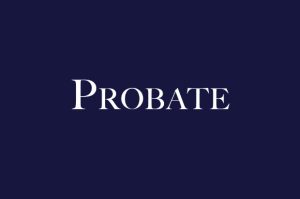Estate Planning
Estate planning is all about preparing for the transfer of the estate of an individual upon his or her demise. An estate comprises of the entire property owned by the deceased at death prior to its distribution by will, trust, or intestacy laws.
Also, an estate can comprise of real and personal properties. Real properties include real estate, houses, and investment properties, while personal properties include properties such as bank accounts, securities, accessories, and automobiles.
Normally, estate involves a rigorous process. The estate planning process involves extensive meetings with many expert advisors, lawyers, financial experts, counselors, accountants, including life insurance representatives.
Probate
Probate is simply done to know if a will was really written by the estate owner or otherwise. This process is also done to supervise the administration of a will.
Probate lawyers are the right person or professionals to contact when faced with a probate case. Probate attorneys have the skills and experience to help you handle that probate issue of yours
If you reside in New York City, ensure you go for a probate attorney that is well accustomed to the probate laws of the state.
Reason for Estate Planning
Estate planning will benefit individuals with large estates, including persons with huge or considerable assets. Preparing an estate plan will ensure that all assets or properties will be distributed based on the wishes of the decedent, and the beneficiaries of the estate get their share without any delay whatsoever.
In a very specific way, preparing an estate makes it very possible to pinpoint those individuals who you wish to benefit from your estate, and to what degree.
Also, estate planning makes sure that the estate won’t be ruined by taxes subjected to the moved assets upon death. Aside from offering personal security, estate planning also helps people to make significant choices, like selecting a guardian for little children, appointing healthcare preferences, including making funeral plans.
Estate planning materials
An estate plan is prepared in a way that it should attain the specific goals of the estate owner. Several tools can be used to make sure that the deceased assets are properly shared based on the wish of the decedent.
The simple tools utilized in estate planning are stated below. But, estate plans vary, and they often depend on the size of the estate, the number of beneficiaries, including the aim of the distribution.
• The Will
Here is the most common tool or instrument of estate planning. Stated in a will are the persons or individuals who would inherit a specific property. Also, wills contain the name of the guardian for minor children, or a will can indicate the type of funeral arrangement that should be carried out upon the death of the estate owner.
All wills must undergo probate, which can be long or short, depending on the nature of the will, including the circumstances surrounding the will. Because of this, the will’s beneficiaries may end up not getting the whole share as stated in the will, and they may also be a little setback regarding the distribution of assets.
In Case there is no Will
If there is no will or other testamentary instrument, the estate of the individual will be shared based on the laws of intestacy. Also, based on the intestacy system, assets are to be shared in a certain order, to cater for a providing spouse, issue, siblings, or parents.
• The Trust
A trust is simply an arrangement in which a trustee shares payments or property to a beneficiary based on the terms of the trust. The beneficiary can be anyone ranging from a close family relative, a friend, a charity, or even a pet.
A trust may be made while the individual is still living, or it can be made alternatively- by a will.A trust which is made by will transfers property to the trustee at the period the individual kicks the bucket. With a trust, you are helping the beneficiaries avoid the probate process.
• Health Care Directives
With the right health care directives, the wish of an individual will be carried out when he or she is not able to make their personal health care decisions. Health care directives can be health care declaration and a power of lawyer for health care.
Health care directives can also be regarded as “living wills.” Living wills or health care directives will help activate the personal choices of an individual when he or she becomes incapacitated.









